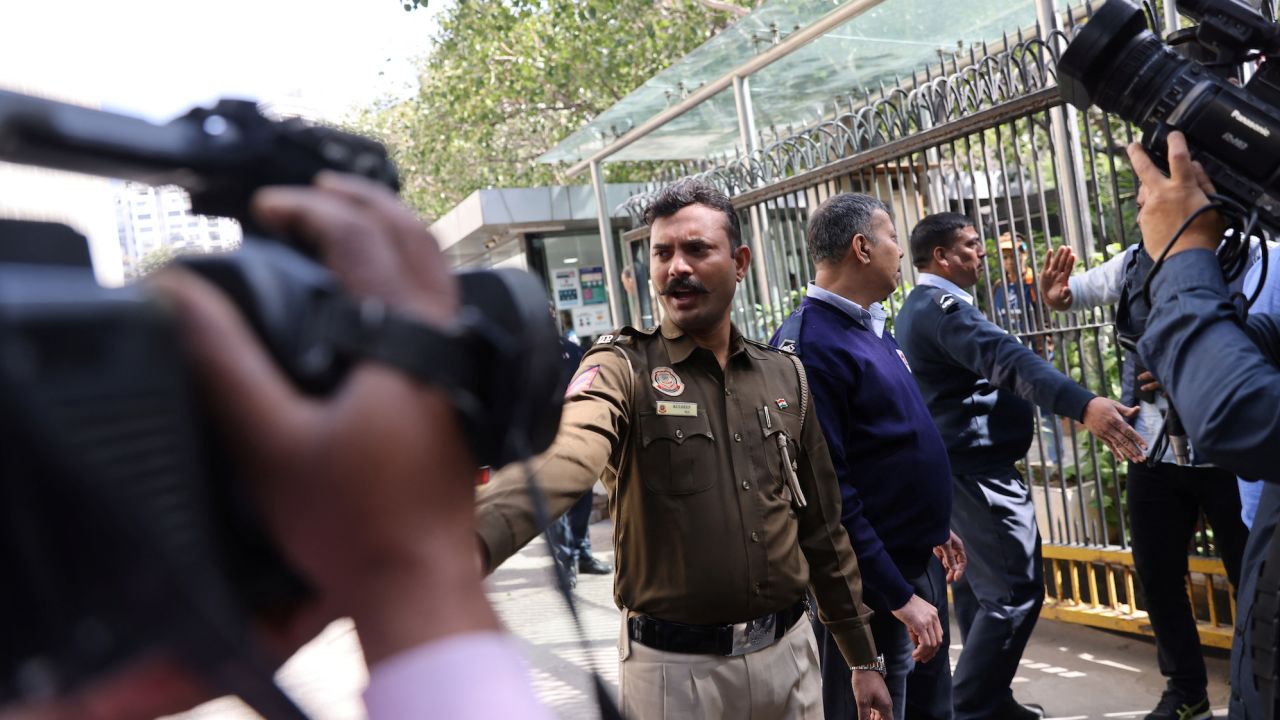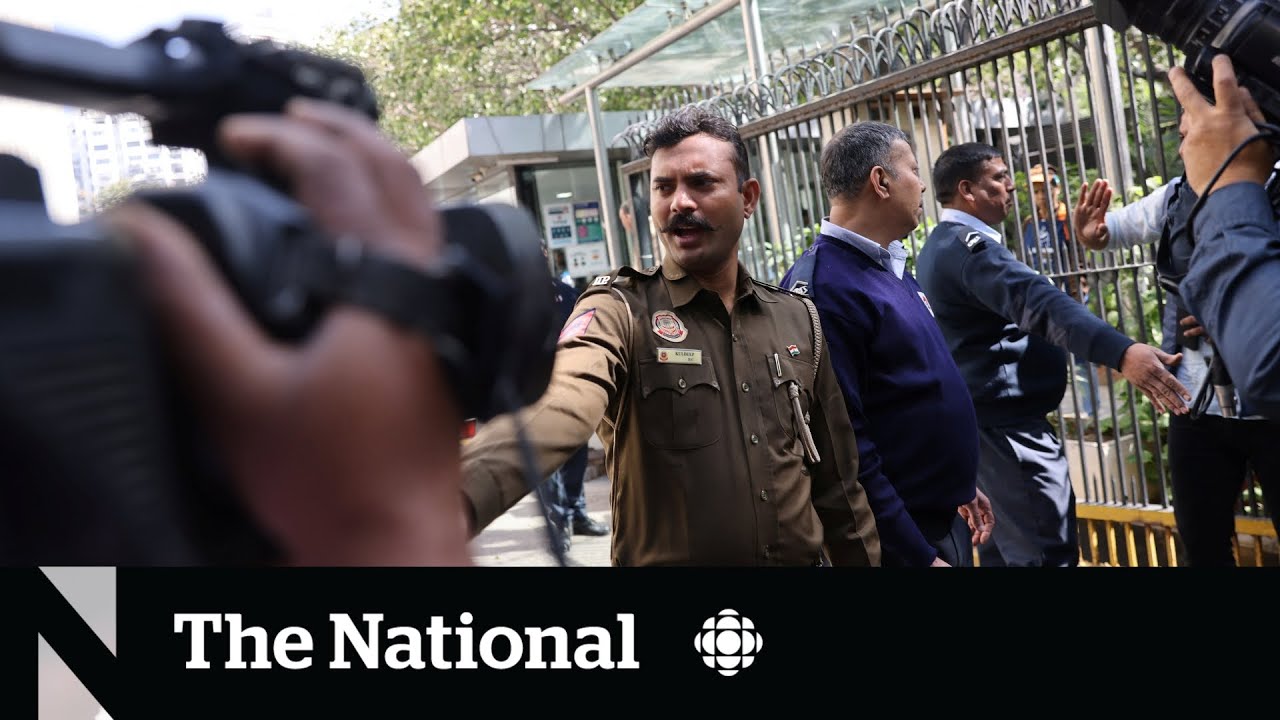Indian Authorities Raid BBC India Offices After Critical Documentary
India authorities raid BBC offices in India after the broadcasting corporation released a documentary critical of Indian Prime Minister Narendra Modi. The documentary, titled "India's Forbidden Love," explored the cultural taboo surrounding interfaith relationships in India.
Author:Suleman ShahReviewer:Han JuFeb 15, 202375.2K Shares1.2M Views

India authorities raid BBC officesin India after the broadcasting corporation released a documentary critical of Indian Prime Minister Narendra Modi. The documentary, titled "India's Forbidden Love," explored the cultural taboo surrounding interfaith relationships in India.
This documentary was released by the BBC on February 14, 2023. It highlighted the challenges faced by couples from different faiths in India, where interfaith relationships are often met with opposition from families and society at large.
The documentary was seen as critical of Prime Minister Modi's government, which has been accused of promoting a Hindu nationalist agenda.
Raid On BBC Offices
Following the release of the documentary, tax officials in India raided the offices of the BBC in New Delhi and Mumbai. BBC Newssaid on TV that employees were not letting anybody in or out of the building.
It was reported that the Indian government had utilized "emergency powers" to prevent the documentary from showing in the nation, and that both YouTube and Twitter had agreed with the order, prompting the raids.
The officials said they were conducting a "routine" investigation into the BBC's tax affairs, but the timing of the raid has raised questions about its motives. The BBC has denied any wrongdoing and said it is cooperating with the authorities.

BBC offices raided by Indian tax officials following Modi documentary
What Is In The Documentary?
"India: The Modi Question" attacked Gujarat's then-chief minister in 2002 after Hindu-Muslim rioting. January UK broadcast.
The rioting killed over 1,000 Muslims and left at least 220 missing, according to official data. Official estimates revealed around 1,000 widows and over 600 orphans.
Modi and his Bharatiya Janata Party took office in 2014 on a wave of Hindu nationalism in the country of 1.3 billion, where roughly 80% of the population is Hindu.
In the documentary, Jack Straw, British foreign secretary in 2002, argues that Modi "had a deliberate role in pushing back the police and in implicitly supporting the Hindu radicals," according to the BBC.
Modi denies failing to halt violence. The 2012 Supreme Court of India special investigating committee found no proof of his guilt. Some victims of the riots still seek justice.
Last month, police apprehended Delhi university students trying to view the forbidden film on campus, increasing worries that Modi's government was limiting liberties.
Freedom Of The Press
The raid on the BBC's offices in India has sparked concerns about the freedom of the press in the country. India has a vibrant and diverse media landscape, but there have been growing concerns about the government's attempts to stifle dissent and criticism.
The raid on the BBC is seen as a worrying development, as it could be seen as an attempt to intimidate journalists and news organizations that are critical of the government.
In conclusion, the raid on the BBC's offices in India is a concerning development that raises questions about the government's commitment to freedom of the press.
The timing of the raid, following the release of a critical documentary, has led many to believe that it was politically motivated.
It is important that the government of India respects the rights of journalists and news organizations to report freely and without fear of reprisals.
The raid on the BBC's offices in India has sparked concerns about the freedom of the press in the country. India has a diverse and vibrant media landscape, but there have been growing concerns about the government's attempts to stifle dissent and criticism.
The raid on the BBC is seen as a worrying development, as it could be seen as an attempt to intimidate journalists and news organizations that are critical of the government.
“„[Raids] will damage the reputation and image of India as the world’s largest democracy. It is deeply unfortunate as this latest instance appears to be a clear cut case of vendetta, coming within weeks of a documentary aired by the BBC. Restrain its agencies from misusing its powers in order to intimidate the media.- The Press Club of India
Final Words
The raid on the BBC's offices in India is a concerning development that raises questions about the government's commitment to freedom of the press.
The timing of the raid, following the release of a critical documentary, has led many to believe that it was politically motivated.
It is important that the government of India respects the rights of journalists and news organizations to report freely and without fear of reprisals.

Suleman Shah
Author
Suleman Shah is a researcher and freelance writer. As a researcher, he has worked with MNS University of Agriculture, Multan (Pakistan) and Texas A & M University (USA). He regularly writes science articles and blogs for science news website immersse.com and open access publishers OA Publishing London and Scientific Times. He loves to keep himself updated on scientific developments and convert these developments into everyday language to update the readers about the developments in the scientific era. His primary research focus is Plant sciences, and he contributed to this field by publishing his research in scientific journals and presenting his work at many Conferences.
Shah graduated from the University of Agriculture Faisalabad (Pakistan) and started his professional carrier with Jaffer Agro Services and later with the Agriculture Department of the Government of Pakistan. His research interest compelled and attracted him to proceed with his carrier in Plant sciences research. So, he started his Ph.D. in Soil Science at MNS University of Agriculture Multan (Pakistan). Later, he started working as a visiting scholar with Texas A&M University (USA).
Shah’s experience with big Open Excess publishers like Springers, Frontiers, MDPI, etc., testified to his belief in Open Access as a barrier-removing mechanism between researchers and the readers of their research. Shah believes that Open Access is revolutionizing the publication process and benefitting research in all fields.

Han Ju
Reviewer
Hello! I'm Han Ju, the heart behind World Wide Journals. My life is a unique tapestry woven from the threads of news, spirituality, and science, enriched by melodies from my guitar. Raised amidst tales of the ancient and the arcane, I developed a keen eye for the stories that truly matter. Through my work, I seek to bridge the seen with the unseen, marrying the rigor of science with the depth of spirituality.
Each article at World Wide Journals is a piece of this ongoing quest, blending analysis with personal reflection. Whether exploring quantum frontiers or strumming chords under the stars, my aim is to inspire and provoke thought, inviting you into a world where every discovery is a note in the grand symphony of existence.
Welcome aboard this journey of insight and exploration, where curiosity leads and music guides.
Latest Articles
Popular Articles